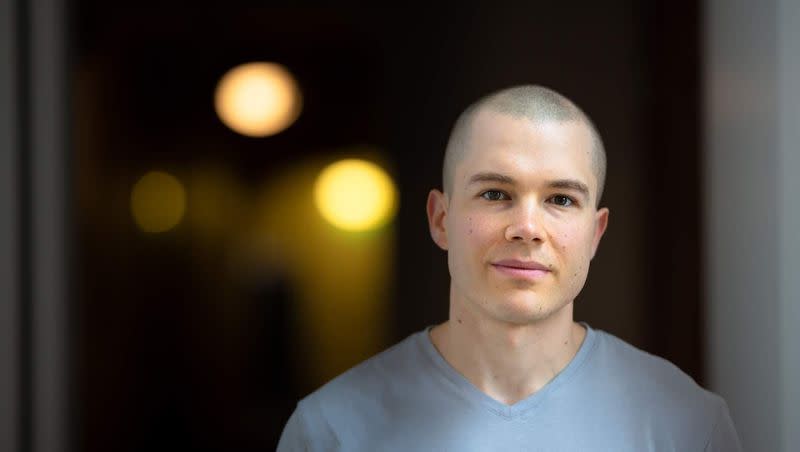Can menopause be delayed indefinitely? This University of Utah professor’s mathematical model predicts it’s possible

- Oops!Something went wrong.Please try again later.
What if the onset of menopause could be delayed?
What if hot flashes, brain fog, mood swings and insomnia weren’t a given for women at midlife?
What if it was possible to maintain ovarian function later in life, which could delay or prevent cardiovascular disease, curb the depletion of bone density and or reduce the incidence of obesity?
A mathematical model developed by a University of Utah professor indicates that it is possible to delay the onset of menopause — perhaps indefinitely — by implanting a woman’s own previously harvested ovarian tissue back into her body.
“The math predicts that the menopause delay under certain circumstances could be 40 years or more. So if menopause happens on average age at 51, then you’re talking menopause in the 90s and that’s longer than most people live,” said Sean Lawley, associate professor of mathematics.
Lawley developed the math model in collaboration with Joshua Johnson, an ovarian biologist at the University of Colorado School of Medicine; Jay Emerson, professor of statistics and data science at Yale University; and Kutluk Oktay, a prominent physician, professor of obstetrics, gynecology, and reproductive sciences and ovarian biologist at Yale School of Medicine.
The model predicted that for most women under age 40, freezing and transplanting ovarian tissue “would result in a significant delay in menopause,” according to the researchers’ study recently published in the American Journal of Obstetrics & Gynecology.
The study concluded, “Our model predicts that with harvesting at earlier adult ages and better transplant techniques, a significant menopause postponement and, potentially, fertile lifespan extension can be achieved by ovarian tissue cryopreservation and transplantation in healthy women.”
Lawley said the best outcomes would coincide with ovarian tissue harvested at earlier adult ages and with better transplant techniques.
The team’s work included development of an online calculator dubbed the NoPauze Calculator. It calculates how many years a woman’s menopause would be delayed according to four data points: the woman’s age when tissue is preserved; the fraction of ovarian cortex tissue that is removed and preserved; the percentage of primordial follicles that survive freezing and transplantation; and the number of replacement procedures later in life.
The modeling indicates menopause would be further delayed if the tissue was not all returned in a single surgery, but instead in multiple procedures occurring just before the woman reached menopause.
When girls are born, their ovaries contain about a million tiny structures called primordial follicles, each of which contains an egg cell. As they mature, most of the follicles will die while only one follicle will survive each month to ovulate a mature egg. When the loss of primordial follicles is nearly complete, and only hundreds remain, women experience menopause. Menopause is a point in time 12 months after a woman’s last period.
Lawley said the number of primordial follicles a woman is born with, across the population of women, can vary by an order of magnitude by a factor of 10.
“You might you might think that if one woman has 10 times as many primordial follicles at birth as another woman, then you might expect that she’s gonna have menopause 10 times later or something like that. But that’s, in fact, not true,” he said.
Techniques to harvest and freeze ovarian tissue were developed in the late 1990s by Oktay, with the goal of preserving young cancer patients’ ability to conceive and have children.
The harvested tissue is frozen or cryopreserved and then transplanted after the woman has undergone cancer treatment. The technique has enabled hundreds of cancer survivors to conceive and have children.
While ovarian tissue transplants could conceivably make it easier for women to get pregnant somewhat later in life, Lawley said he and his research colleagues were primarily concerned with exploring the possibility of delaying menopause with respect to health benefits for women.
“I saw a headline about some of this work and there was something about ‘Babies for women in their 80s’ or something like that. Yes, that is attention grabbing but this is not what we’re motivated by or what we’re thinking about,” he said.

